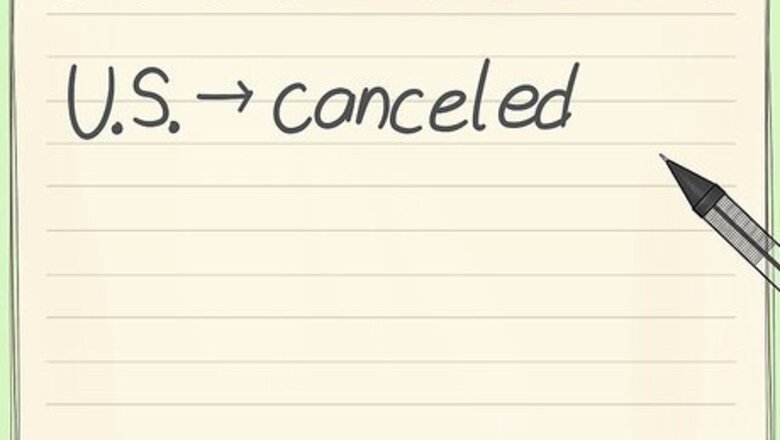
views
The Quick Answer
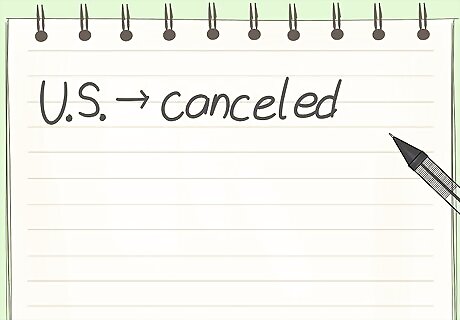
Use "canceled" in American English. Most professional and personal literature produced within the United States only spells the word with one l: canceled. Note that Associated Press (AP) style guidelines formally recommend the American English spelling, so if you're wondering how to spell the word in an academic essay for a U.S. school or university, or wishing to use it in a professional article, it's best to use "canceled."
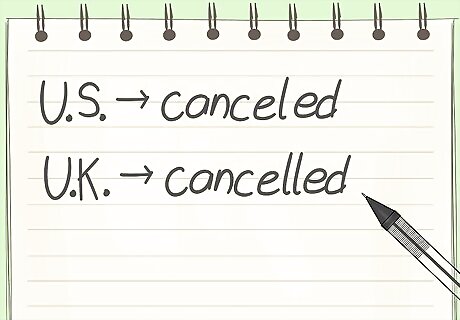
Use "cancelled" in British English. If you're reading something from the United Kingdom, you'll probably see that the writer doubled the l: cancelled. Similarly, other forms of English that adhere more closely to the original British English, like Australian English and Canadian English, also use this version of the word.
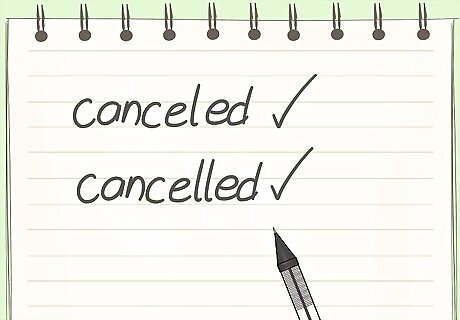
Don't worry too much. While each version of English has its own preference, you'll likely see both "canceled" and "cancelled" used interchangeably throughout the English-speaking world. It's a good idea to memorize the difference for academic and professional writing purposes, but for everyday usage, either spelling works. The swap is especially common in the United States. While "cancelled" is the preferred spelling by a wide margin in British English, "canceled" beats out "cancelled" by a much smaller margin in American English. In fact, there is roughly one double-L spelling for every five single-L spellings when analyzing literature written within the United States. Outside of the United States, however, the single-L spelling rarely occurs.
The Underlying Principle
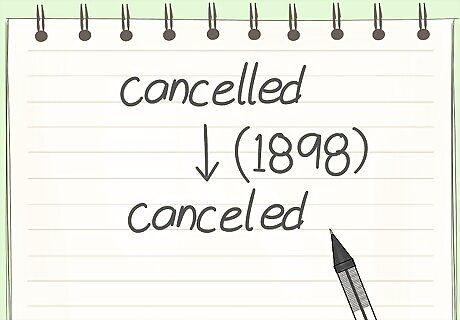
Learn about the origin of the change. When the American lexicographer Noah Webster created his 1898 dictionary, he dropped the double-L on "cancelled" and several other terms. That was likely when American English first adopted "canceled" as the proper form. When Webster made his change to “canceled,” he also dropped letters from various other British spellings. That's why you'll see words like "color" and "humor" written with only an "o" in American English, even though they're written as "colour" and "humour" in British English. That being said, most American literature still used the double-L "cancelled" for several decades. The literary switch to "canceled" began taking hold in the 1940s and only gained dominance in the 1980s.
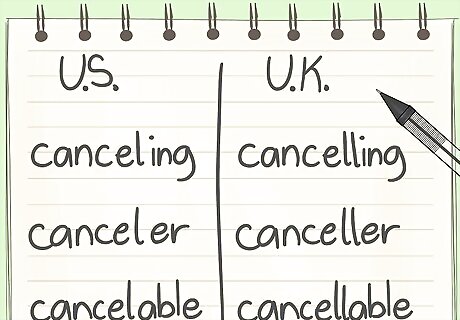
Follow the same guideline for "cancelling." Like "cancelled," "cancelling" should be spelled with a double-L when using British English and a single-L when using American English. You should apply the same rule for canceller/canceler and cancellable/cancelable. Note, however, that this rule does not apply to cancellation, which is always spelled with the double-L, or to cancel and cancels, which are always spelled with only a single-L.
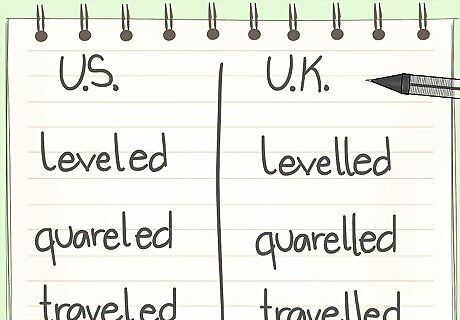
Apply the same principle to similar words. As a general rule, this principle applies to any word with multiple syllables when that word ends with L. This means that, when using British English, you should double the ending L of such words any time you add suffixes like -ed, -ing, -ist, -ize, and -ise. In most instances, however, you would keep the single-L spelling for American English. Examples of other words following this rule include: level (leveled/levelled), quarrel (quarreled/quarrelled), and travel (traveled/travelled).
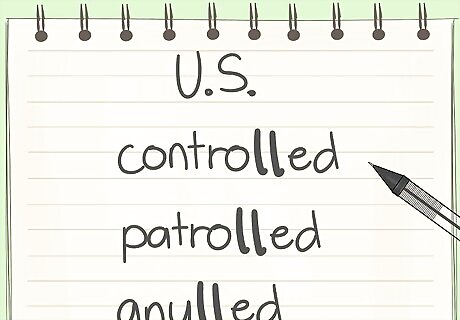
Understand when American English doubles the L. Within American English, you should double the ending L of a multiple syllable word if the stress does not fall on the first syllable. For example: control (controlled), patrol (patrolled), and annul (annulled) Note that British English maintains the double-L spelling for these words, as well.
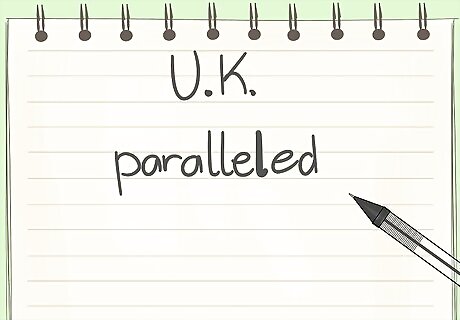
Know when British English drops one L. If the second-to-last syllable of a multiple syllable word ends with more than one L, you should not double the final L even if using British English. The only relevant example is the word "parallel" (paralleled). American English also refrains from adding another L to the end of this term.

















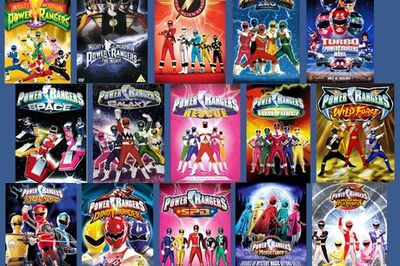

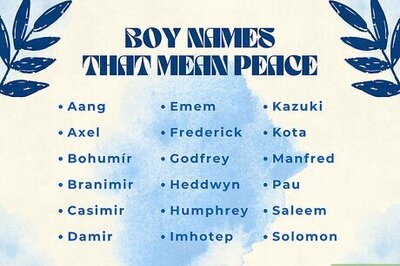
Comments
0 comment